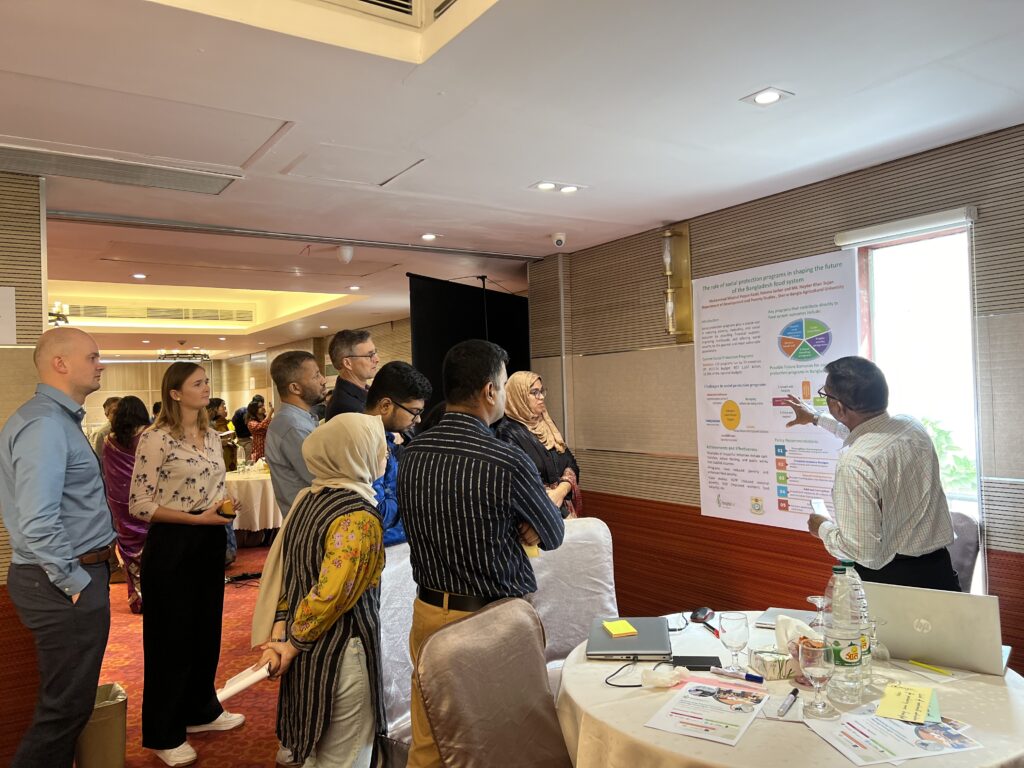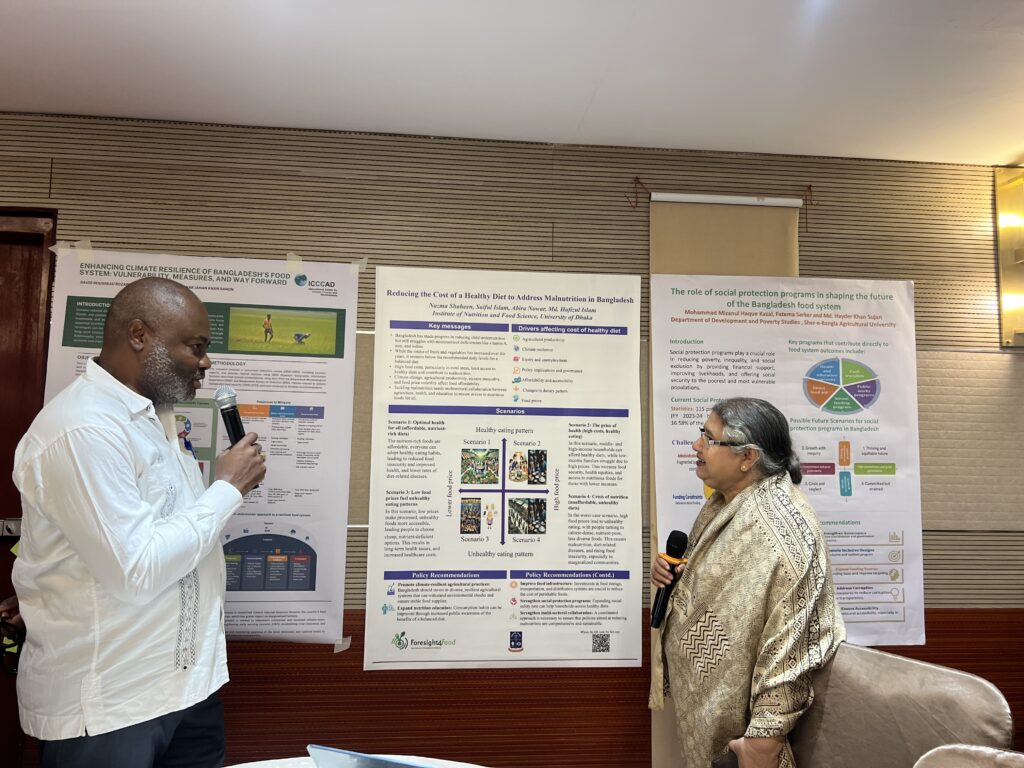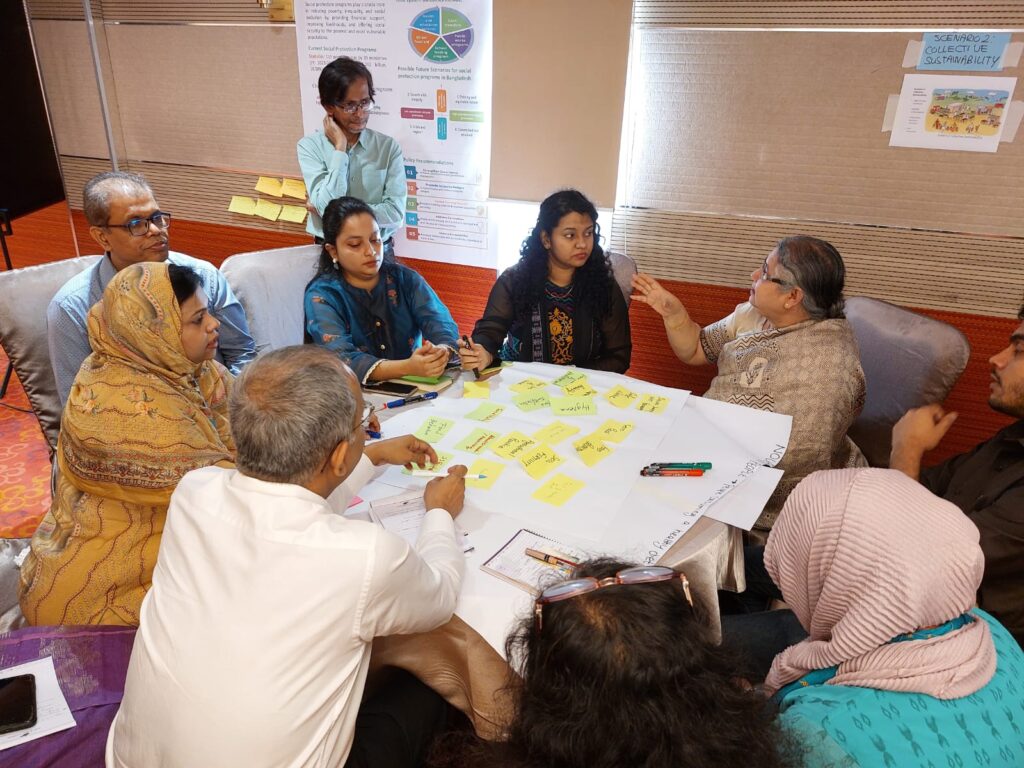Dhaka, November 2024 – From November 4 to 8, 2024, the FoSTr programme conducted a pivotal in-country visit to Dhaka, engaging policymakers, researchers, and stakeholders in shaping the United Nations Food Systems Summit (UNFSS) Pathway Plan of Action for Bangladesh.
The highlight of the visit was a two-day participatory workshop (November 6-7), where participants explored future scenarios for the country’s food system using foresight tools and systems thinking. The workshop aimed to integrate these insights into the UNFSS action plan and prioritize actionable strategies to address critical food system challenges.
Key stakeholders, including representatives from UN agencies (IFAD, FAO, WFP), the Dutch Embassy, and Bangladesh’s Ministry of Food, contributed to discussions on leveraging nature-based solutions, fostering equitable livelihoods, and building resilience to vulnerabilities. The workshop emphasized innovative approaches, such as causal loop mapping and theories of change, to identify leverage points and prioritize impactful actions.
Opening remarks by Jim Woodhill, Lead Foresight4Food Initiative and GAIN Bangladesh, key FoSTr partner in Bangladesh, set the tone, while welcoming addresses from high-level officials including Mohd. Monirul Islam, Additional Secretary (Attached) (SDG Affairs), Chief Advisor’s Office, Government of the People’s Republic of Bangladesh underlined the importance of foresight in aligning the food system transformation with Bangladesh’s Sustainable Development Goals (SDGs).
The workshop included a comprehensive overview of the current landscape of food systems transformation, highlighting both key opportunities and pressing challenges. Participants engaged with research partners who presented poster sessions based on their detailed background briefs. These briefs provided in-depth analyses of critical thematic issues within Bangladesh’s food system, examining trends, opportunities, and challenges to outline future scenarios and propose actionable recommendations.



Following this, participants validated four future scenarios developed during a participatory workshop held earlier in June. These discussions underscored the importance of identifying strategic actions to achieve desired outcomes while mitigating potential risks. This step was pivotal in shaping the UNFSS Plan of Action, ensuring it is grounded in foresight and aligned with Bangladesh’s food system priorities.
The event concluded with commitments from diverse stakeholders to support the actionable UNFSS pathways, reflecting a shared vision for a sustainable food future in Bangladesh. FoSTr plans to synthesize insights from the visit into a user-friendly document to further guide the drafting and implementation of the action plan.